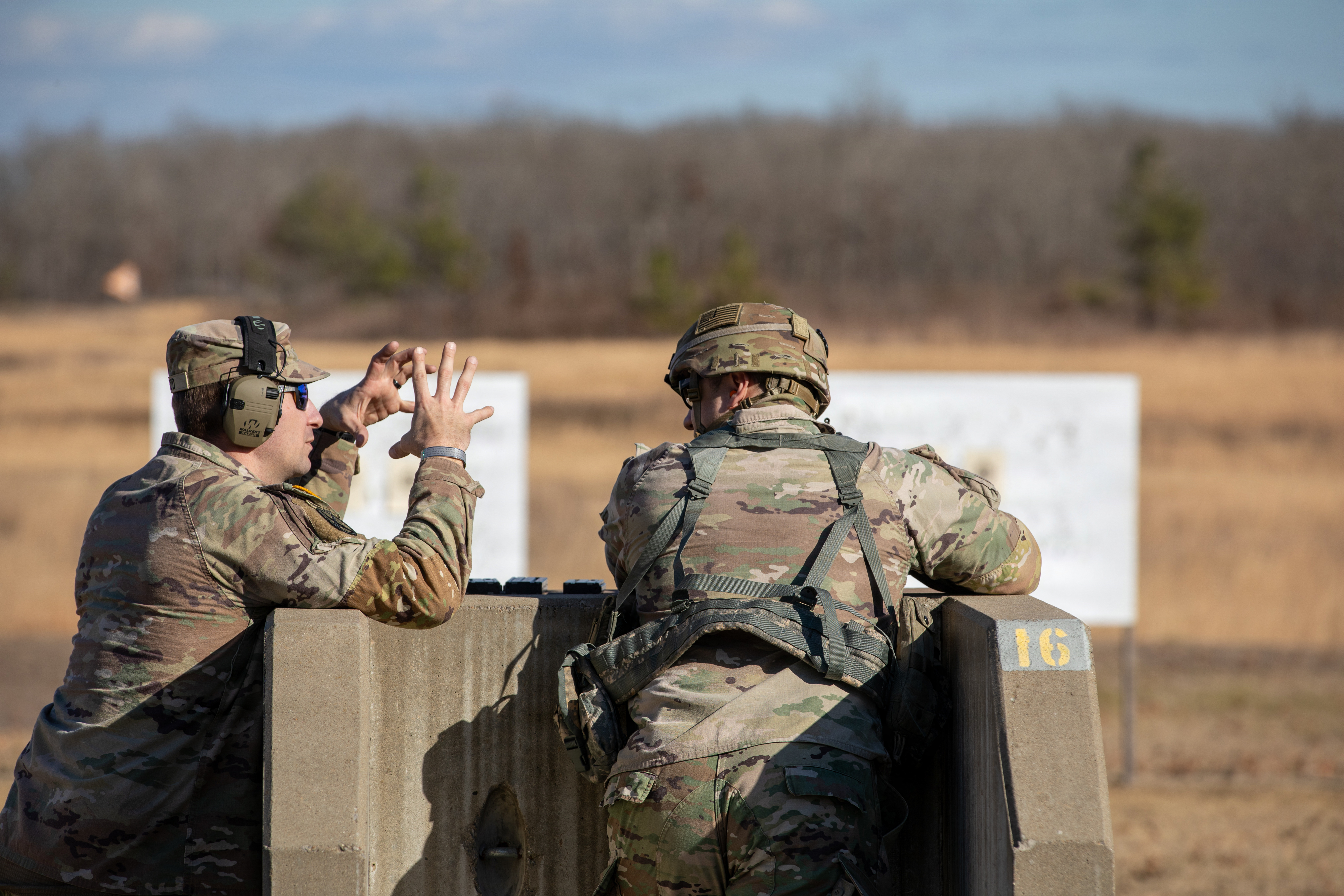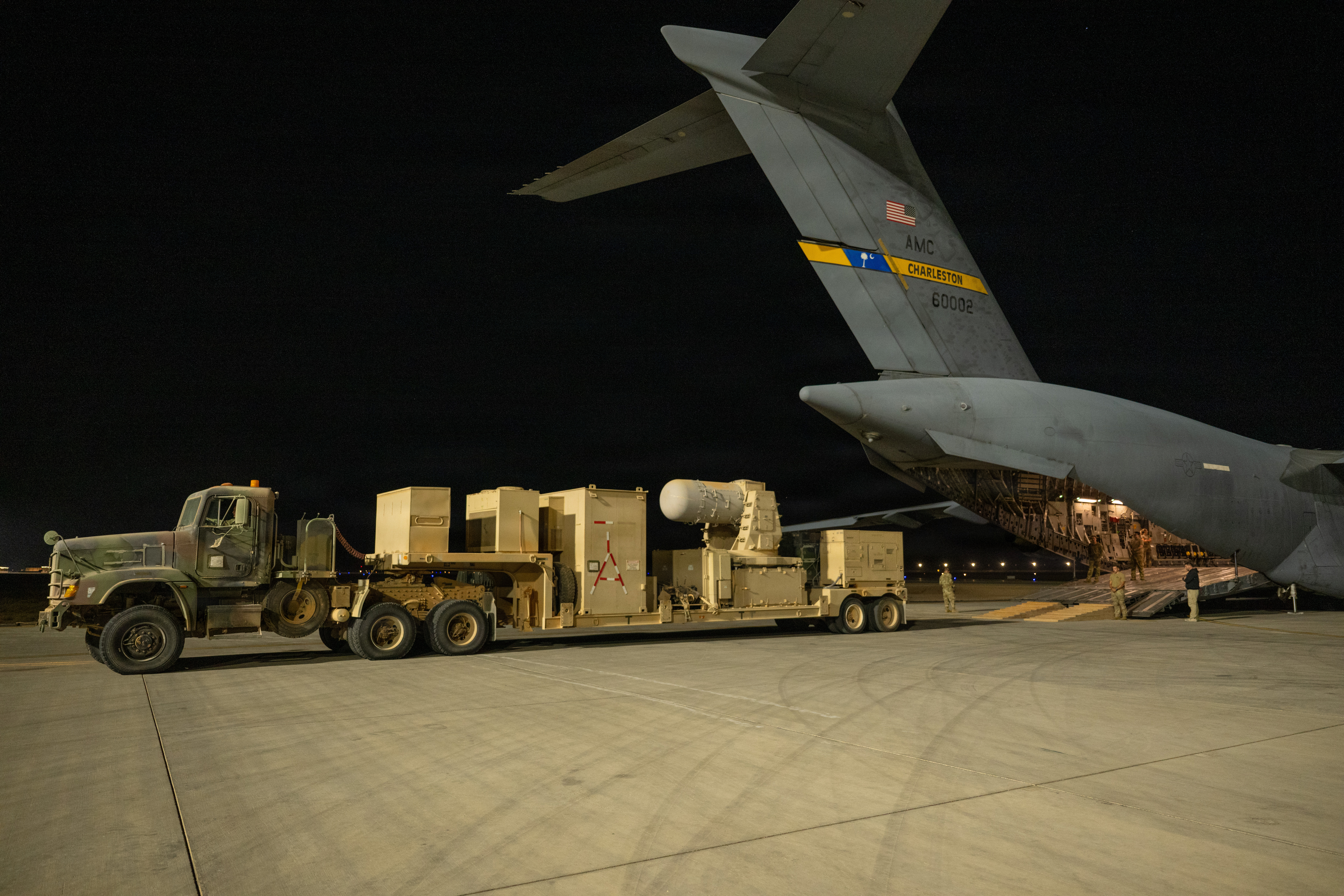Servant Leadership in Basic Combat Training Part 1: Empathy and Listening

The definition of empathy provided in FM 6-22, is sound, if not simplistic: “Identifying and understanding what others think, feel, and believe.”[1] Early in my command, remembering the servant leadership traits was most difficult when working with Trainees who refuse to train and have disciplinary infractions, in short – the troublemakers. A typical BCT company is full of individuals from various parts of the United States and all over the world. While this brings about diversity within our military, it can at times create issues as Trainees are introduced to people from places they have never heard about or seen. These differences can create clashes within the company as Trainees learn cohesion and teamwork with their battle buddies. Sergeant Major of the Army Grinston said “Commanders at all levels must take care of Soldiers, even when things go wrong.”[2] In order to build strong cohesive teams and develop the Army’s next generation, leaders have to take ownership of their units and all those within the unit, even during the difficult times.
Years ago, I was privy to be in my battalion commander’s office when a Soldier was facing Uniformed Code of Military Justice (UCMJ) action. I remember having mixed feelings about the event, but not truly feel strongly about it, knowing I was merely a spectator, standing in the room only because my commander thought all lieutenants should see behind the scenes and witness a UCMJ hearing. It was not my signature on the paperwork initiating a separation, essentially, it was not me who was firing this U.S. Army Soldier who had given years of his life to serve his country.
Two months into command, when I initiated separation on the first Trainee, not only did I recall the time I stood in that battalion commander’s office years ago, but I also learned two things about myself: 1. I needed to work on empathy and 2. I failed to truly embody what I always thought servant leadership encompassed. In the brigade, legal packets are supposed to have a quick turnover between parties. I kept that in mind as I signed the discharge paperwork and gave the Trainee a counseling. I ensured I checked all the boxes, notifying him of the next steps of the process, but I had taken the empathy quality out of the event. I treated it as something to do instead of putting things into perspective that this individual raised his right hand and volunteered to enlist in the U.S. Army. Two days later, this particular Trainee was out of my company, moving on to a holding company while he awaited his separation. I met the timeline for the separation and prided myself in having sent the separation packet back to Battalion S1 the same day I received it, but what did I really do for the individual Trainee? Essentially, I fired him and never thought twice about it…until I did. As I became more familiar with the role of a commander and figured out my leadership style as a commander, I could not stop thinking of the Trainee I separated. Why did he cry when I had him sign the papers? Did he have a home to go back to? What would he do next with his life? Things I thought of and remedied before I was faced with the next separation were:
- Take time to learn about your subordinates. As a fresh commander of a BCT unit, I egotistically thought I didn’t need to know the Trainees. The less I interacted with them, the better when it came time for decisions in regard to Non-judicial Punishment. I saw my company cadre as subordinates and the Trainees as work. I was wrong! Basic Combat Training is strict and builds Civilians into Army Soldiers, but these individuals are still people. Since then, I talk to the new cycle that comes through my company on a regular. I attend all the training events, conduct PRT with a different platoon and just walk around talking with Trainees. I’ve learned a lot doing this and I think it’s made me into a better commander. I’ve met people from all walks of life. Some were in school prior to enlisting, some were homeless, while others wanted a change of job. All of them had one thing in common-they volunteered for the military and I needed to treat them as if they did.
- Find their “why.” As mentioned, everyone joins the military for a different reason. That reason is what helps Trainees motivate themselves and each other through grueling days of training. I recently had a Trainee run away into the woods during a field exercise cursing and proclaiming she was walking back home and away from the Army. I quietly followed her until she calmed down and stopped walking. After letting her know I would be standing nearby to talk when she was ready, I left her alone to compose herself. During our follow-on conversation, I learned she had enlisted for her kids and that her son’s birthday was that day. I asked her to tell me about her kids and what they thought about her enlisting. Her kids were her “why” and her motivation to continue training when days were difficult. She decided to continue training and successfully graduated, fulfilling her reason for enlisting.
- Is the Army their last option? My first separation was a business transaction without any thought other than whether I filled the paperwork correctly. After the encounter and as I second-guessed my decision, I made it a point to ask the “trouble-makers” more detailed questions. Some stories have involved being part of a bad crowd and heading towards jail if they didn’t join to do something better with their life. My first separation packet included several platoon level negative counselings which led to a separation. What about an Article 15? Although I regret not fully exploring all my UMCJ possibilities, every Soldier deserves every possibility. I’ve made Article 15’s a requirement I explore before jumping to a separation. In some cases, an Article 15 has made the difference to someone going down the wrong path.
- Does the punishment meet the misconduct? My initial separation Trainee had numerous counselings in his packet regarding falling asleep on fireguard. Although there were others which were more serious, leading him to be transferred to another platoon, do multiple missed fireguard shifts equate to a separation? In retrospect, I could have helped my Cadre and the Trainee be successful. Instead of looking for options of helping him stay awake or having someone wake up the Trainee earlier, I allowed for the negative counselings to pile up. Setting the tone for the company led to the Drill Sergeants also adopting a strict policy, eager to separate anyone for minor infractions.
- What’s next? Soldiers are encouraged to have a five-year plan and to plan for their next PCS or position. The Soldier-for-Life Program assists those leaving the military with a smooth transition into the civilian life. Although a Trainee with 90 days of military experience differs from a 20 year-career retiring combat veteran, one thing between them is the same-they will both need something to do in their post-military life. I ask every Trainee who I separate what they will do when they get back home. Do they have a plan for a job or somewhere to live while they figure out their next move? Trainees who are not being discharged are frequently talked to about this as well. What are they hoping to do at their first unit of assignment? Will they enroll in college? For the National Guard and Reservists, I ask about their civilian jobs and how the military will play a part in their life when they return home.
“Nobody cares how much you know until they know how much you care.”[3] TRADOC Commander GEN Funk’s fundamental #28 highlights emotions in our Army profession. Leaders are educated through different mediums, devoting time to their personal and professional development, repetition and years of service, however, someone with quality training and an array of good ideas can still be a bad leader. Communication is key to gaining empathy and trust. Successful leaders build a foundation of trust by listening to their Soldiers. Additionally, asking about a Trainee’s background, what their military aspirations are, life before the Army, etc. helps ease a Trainee into the military while they struggle to assimilate to the Army standards and profession. Listening may give a leader clues to a person’s mental stability and whether they are a harm to themselves or others. For those being discharged and afraid of the unknown that lays before them, discerning the unspoken words and deciphering implied messages are valuable tools for a leader to embody.
I may take longer now to take action on any UCMJ or Non-judicial Punishment, as it’s no longer a “check the box” situation for me, but through the art of listening, I’ve been able to acquire information I need to make an informed decision.
If you liked this story, you may also like The Power of Appreciation.
———
CPT Wendy Almengor is a Military Intelligence Officer who currently commands Bravo Company, 3rd Battalion, 60th Infantry Regiment at Fort Jackson, SC. Prior to her command, she was the 3/60th IN BN S3. Her prior assignments include working in BN and BDE S2 shops and working as a Platoon Leader.
———
[1] Leader Development, Field Manual 6-22 (Washington, D.C.: Government Printing Office, June 30, 2015), https://armypubs.army.mil/epubs/DR_pubs/DR_a/pdf/web/fm6_22. pdf
[2] “SMA Reinforces Leadership, Caring for Soldiers,” Association of the United States Army, (2020)
[3] Bonzo, Madison. (2020). “Funk’s Fundamentals: General Shares Life Lessons. https://www.tradoc.army.mil/Publications-and-Resources/Article-Display/Article/2087592/funks-fundamentals-general-shares-life-lessons/



